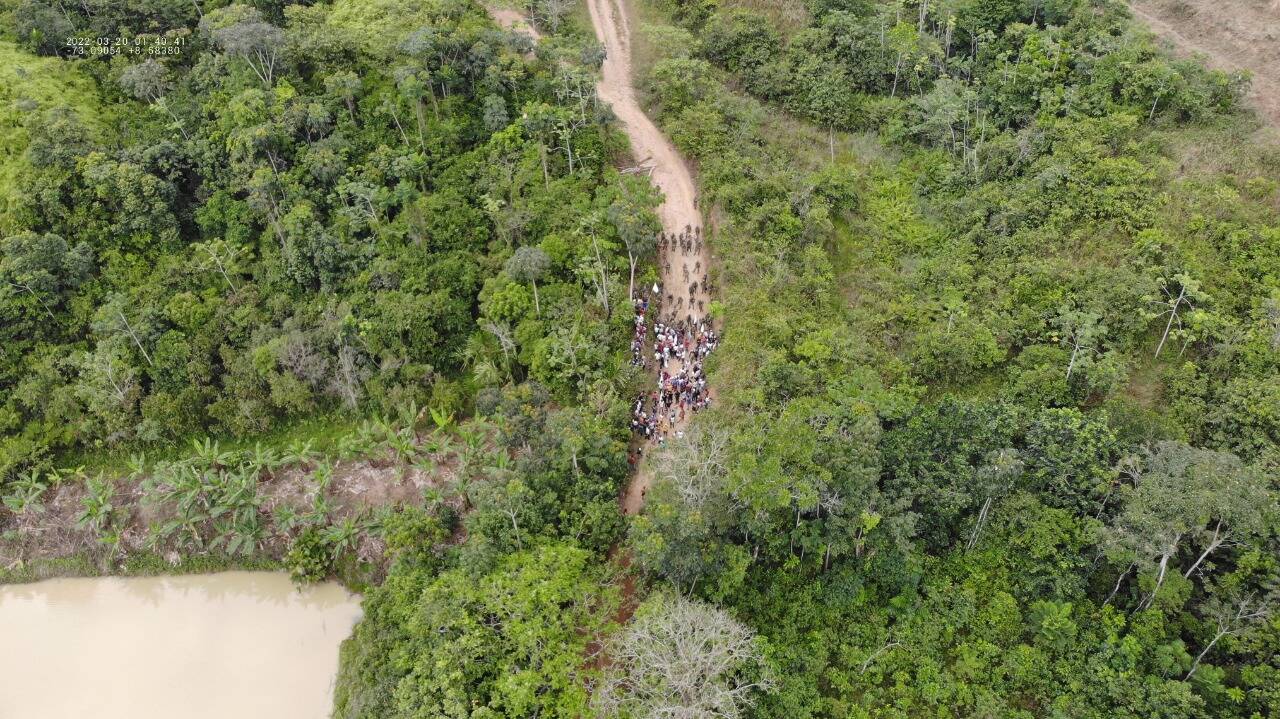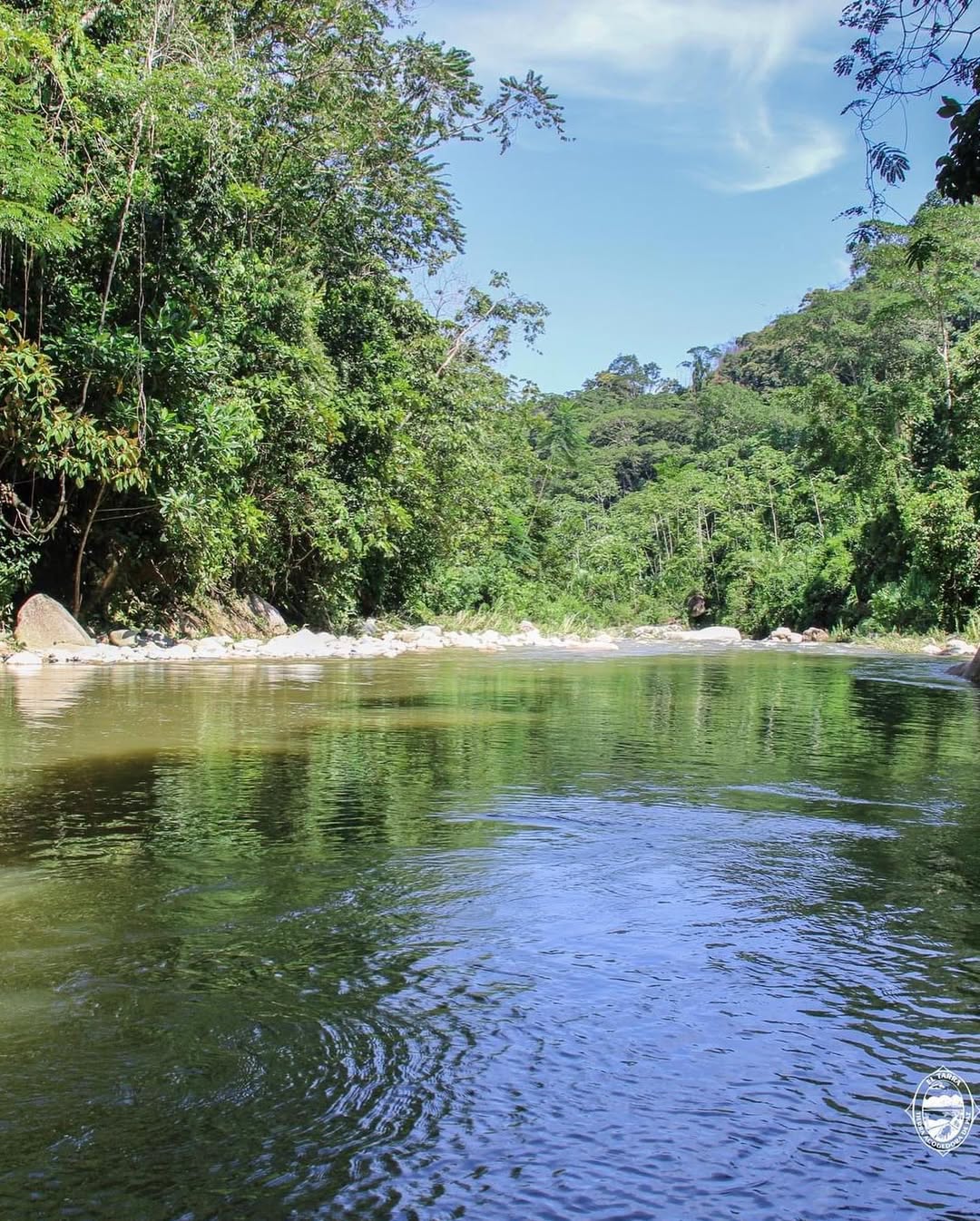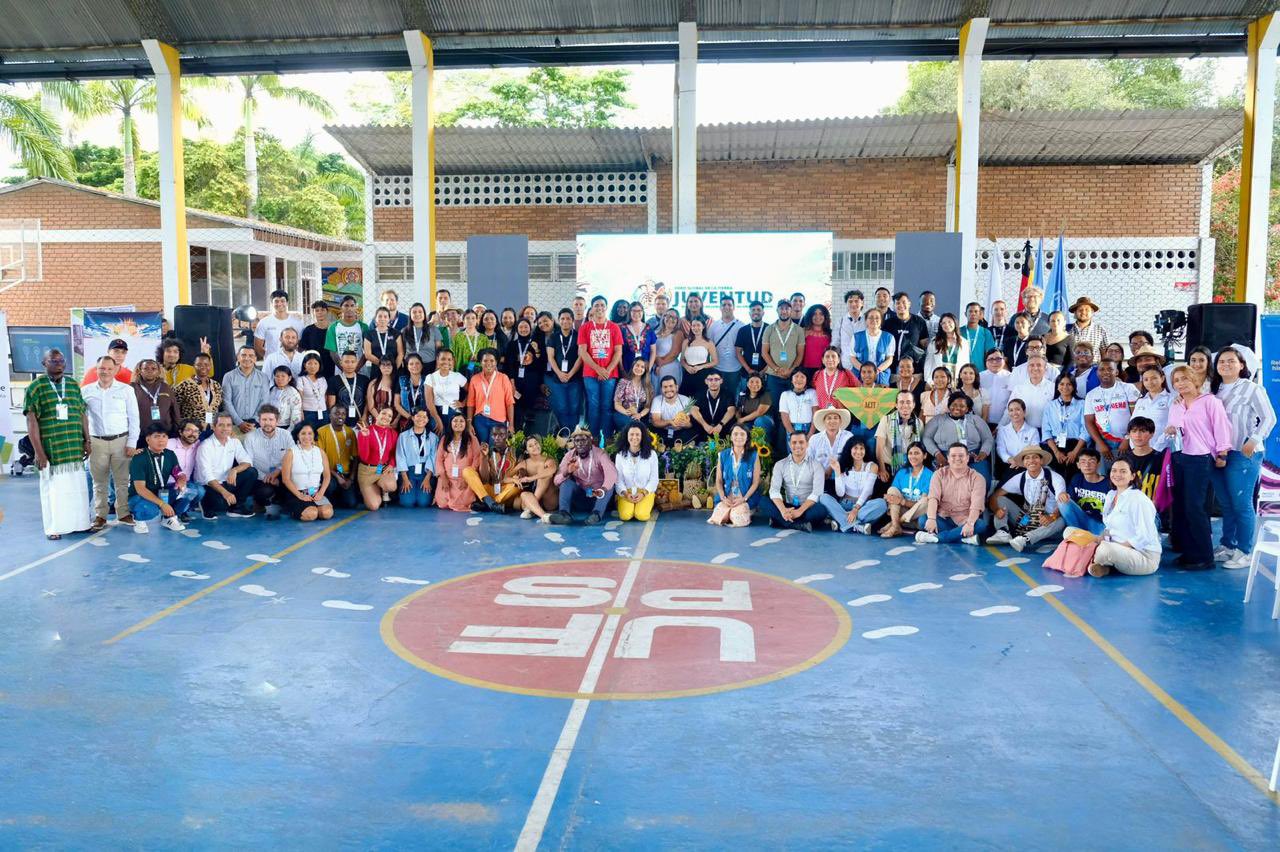Is ecotourism allowed in Catatumbo? Young people in the region believe it is and are urging the state not to leave them alone.

Catatumbo has been experiencing an ongoing conflict. Since January of this year, this northeastern region has faced a severe humanitarian crisis and violence sparked by clashes between the 33rd Front of dissidents and the ELN, which has left more than 65,000 displaced, 23 confined, and more than 100 dead. But in December 2024, the situation was different, and the vision of the region's youth was that there were other possibilities beyond war, all thanks to ecotourism.

The community in El Tarra, especially in rural areas, has been affected by the conflict. Photo: Private archive
At the end of last year, three young people from the municipality of El Tarra, in the heart of Catatumbo, set out to change the course of their community through tourism. Merly Cañizares, Isa Toscano, and Jaiver Prado presented what they had achieved through Youth Ecotourism, an initiative born from the Youth Impulse project, developed in the area by the Food and Agriculture Organization of the United Nations (FAO), the United Nations Children's Fund (UNICEF), and the United Nations Office on Drugs and Crime (UNODC).
In a territory historically marked by conflict, young people found a way to redefine their surroundings through culture, art, and biodiversity. “We asked ourselves, 'How do we give the municipality an identity?' And with this opportunity, we said, 'This is it,'” says Merly Cañizares, youth councilor for El Tarra. While other municipalities are well known for their distinctive identity, such as Ocaña, which is associated with religious tourism, or Teorama, which is associated with pineapple cultivation, this wasn't the case with El Tarra.

Merly Cañizares, youth counselor for El Tarra. Photo: Private archive
Cañizares, Toscano, and Prado decided to change that, working with the community. The proposal materialized in the construction of four symbolic sculptures, strategically located throughout the municipality. Each represents a pillar of collective memory and the future that young people yearn for: the first is a cachama, a fish that symbolizes a new sustainable economy based on fish farming; the second is the heart of Catatumbo, made of wood, which honors the municipality's geographic location; the third is a painting of eyes called "ancestral gazes," a visual homage to the Barí indigenous people, native to these lands; and finally, the last is a swing called "impúlsate por la vida," decorated with flowers and vines, symbolizing the childhood stolen by war. "The war stole our childhood, and we wanted to have a swing there to give it new meaning," explains Merly.

Cachama sculpture, located in El Tarra. Photo: Merly Cañizares
In addition to this art circuit, says Cañizares, a route has been designed to show visitors what El Tarra has to offer: a still-unexplored landscape, with jungles that form natural roofs, crystal-clear rivers, and a biodiversity that is often untouched. "Everywhere you look, there's water. Spas, jungle, there are even areas where humans have never entered," Merly enthuses. In this territory, it's still possible to find jaguars and other large mammals that have been protected by decades of isolation and the natural protection of the indigenous peoples.

El Tarra is a municipality blessed with biodiversity. Photo: El Tarra Mayor's Office
However, all that momentum came to a screeching halt. In January 2025, just a few weeks after the initiative was presented, the escalating conflict in the area halted the planned tours and activities. According to Cañizares, violence not only impedes progress; it also puts at risk the lives of those who dare to dream of a region at peace. “Many voices calling for peace today are military targets,” he denounces.
Faced with this reality, their call is clear: “Don't leave us alone. Catatumbo needs protection, attention, not only from the State, but from the entire country. Right now, we need a lot of attention, a lot of protection from the entire country because the war we're experiencing is so cruel. Children as young as 14 and 16 with weapons. It's very sad to see every day.”
Amid the difficulties inherent in the conflict, Merly—who is participating this week in the Global Earth and Youth Forum, held in Ocaña and bringing together more than 70 youth leaders from around the world—insists that this region cannot continue to be relegated to oblivion.

Participants in the Global Youth Forum for the Earth, held this week by FAO in Ocaña. Photo: FAO
“Today, we are facing a great deal of uncertainty about what will happen to us,” he affirms. “We as young people expect solid responses from all fronts. It's not just the State's responsibility, but we do want everyone to get moving towards a national project,” he says.
Despite the uncertainty, the desire to continue building a territory where opportunities for all remain intact among the region's youth. If minimum safety standards ever return, Catatumbo—and El Tarra in particular—will be ready to welcome travelers seeking more than just a break: a true connection with the land, with nature, with the living history of a resilient region.
"It's for that tourist who wants to disconnect from the noise and the concrete, who wants to breathe fresh air and see wildlife that doesn't exist in any city. That tourist will find their place in El Tarra," Merly concludes.
Environment and Health Journalist
eltiempo





